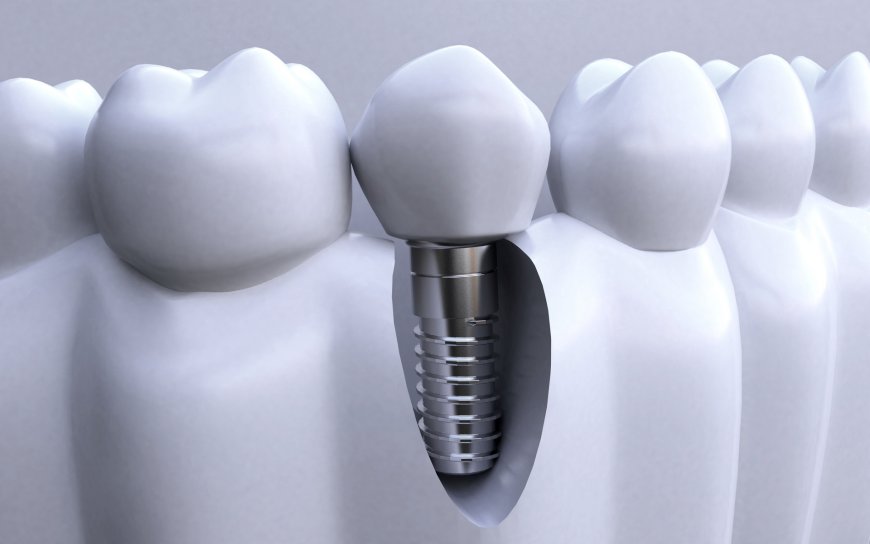Dental Implant: What You Must Know
Dental implants are also called artificial dental implants, which consist of a lower supporting implant and an upper dental restoration. They are not actually implanted with natural teeth. In layman's terms, dental implants are a method of inserting an implant made of artificial material into the alveolar bone of the missing tooth area through a minor surgical operation to serve as an artificial tooth root, and then use this as a basis to repair the missing tooth.

-
Steps in Dental Implantation
Initially, a pre-examination is necessary to assess the patient's oral condition. This includes evaluating bone mass, implantation space availability, and the presence of periodontitis. If periodontitis is present, it must be treated first. If there is insufficient space for implantation due to dental malformations, several solutions exist, but most people currently opt for a short-term local orthodontic treatment to create enough space for immediate implantation.
Designing the implant plan is also part of the pre-examination phase. The doctor will discuss with the patient which implant method to use, including how many implants are approximately needed, and whether bone grafting is necessary.
The implant surgery can commence once the aforementioned issues have been addressed. The process can be simply understood as drilling a hole in the jawbone, placing the implant, then suturing and waiting for the implant to integrate with the jawbone. The process for a single tooth implant takes about 20 minutes.
Post-implant recovery takes approximately 3-4 months, depending on the individual. If inflammation or other symptoms occur during this period, immediate medical attention is necessary. If everything goes smoothly without inflammation, a dental crown can be placed after 3 months.
After receiving the dental crown, which is manufactured and delivered from the factory within about two weeks, the crown is fixed, completing the process. However, ongoing dental care is necessary, avoiding overly hard food and regularly visiting the dentist for check-ups.
-
Is an Implant Necessary for Every Missing Tooth?
Most patients assume that each missing tooth requires an implant, but this is not necessarily the case. The doctor will design the most appropriate restoration plan based on imaging data and the patient's oral condition.
For example, a patient with no teeth in the mouth may only need 4-6 implants in the upper jaw and 6-8 in the lower jaw to restore full occlusion. In cases where 3 consecutive teeth are missing on one side, usually only 2 implants are needed to restore 3 crowns. Therefore, the specific number of implants needed is determined by the doctor based on each individual's situation and the distribution of occlusal forces in the mouth.
-
Which Comes First: Dental Implantation or Orthodontics?
Orthodontic treatment should be done first. This is for two main reasons: first, if a tooth has been missing for a long time, causing adjacent teeth to tilt and encroach on the implant space, orthodontic treatment is necessary to create space for the implant. Second, after dental implantation, the jawbone and the implant integrate as one. If orthodontic treatment is done afterward, it can damage this integration, nullifying the benefit of the implant.
-
Is Immediate Implantation Always the Best Choice?
Immediate implantation means placing the implant right after tooth extraction. Many patients believe this saves time. However, immediate implantation requires high oral condition standards and careful examination. If conditions are not suitable for implantation, do not rush the process. Allow time for the jawbone to heal, and if periodontal treatment is needed, please do so promptly. Once oral conditions are suitable for implantation, it is never too late to proceed safely.
Furthermore, immediate implantation tends to be more expensive.
-
What Are the Risks of Dental Implants?
Although the wound from a dental implant is small, it is still a surgical procedure and the greatest risk is infection. For example, difficult-to-treat anaerobic bacterial infections, or patients with underlying diseases such as diabetes, must control their blood sugar and improve their immune system before undergoing dental implant surgery. Those with periodontitis must receive treatment in advance.
It is crucial to choose a qualified and reputable dental hospital for implant surgery. Pay attention to the hygiene and sterilization of the operating room. Post-surgery, anti-inflammatory medication and mouthwash are essential. Cleaning teeth after meals and proper use of water floss are also critical.

What's Your Reaction?




























:quality(85):upscale()/2024/01/25/878/n/1922153/f94f61ec65b2bf18018990.47538761_.jpg)

:quality(85):upscale()/2024/01/26/759/n/29590734/b7f6660b65b3e8460d7196.77057039_.jpg)
:quality(85):upscale()/2024/01/27/741/n/1922153/8d43a26665b533b214de01.38307153_.jpg)











